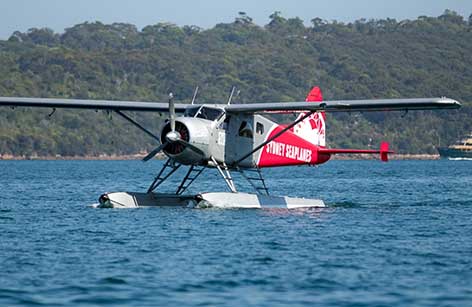The Australian Transport Safety Bureau (ATSB) have released an interim report into the collision with water involving DHC-2 Beaver floatplane, VH-NOO, which occurred at Jerusalem Bay, adjacent to the Hawkesbury River, NSW, on 31 December 2017.

The interim report updates the known circumstances of the accident to date, including the aircraft’s flight path prior to the accident, environmental conditions, post-accident aircraft examination, maintenance history and pilot experience.
ATSB Executive Director, Transport Safety, Mr Nat Nagy, said it is important to note the ongoing nature of the investigation.
“It is important to note that the ATSB’s investigation into this tragic accident is ongoing, so we are constrained on the information we can release publicly at this time,” Mr Nagy said. “However, the interim report, which we released today, does provide a factual update on the investigation so far. The report does not include any findings or recommendations – these will be provided in a final report, which we do anticipate to be released in the first half of next year.”
After taking-off from Cottage Point, the aircraft climbed and turned right into Cowan Creek heading towards the main Hawkesbury River into the prevailing wind on a standard departure path. However, while over Little Shark Rock Point, the aircraft made a right turn, reversing its direction. The aircraft levelled out before flying on a straight path directly towards Jerusalem Bay with a tailwind. Shortly after, the aircraft entered Jerusalem Bay at an altitude below the surrounding terrain height.
As the aircraft approached Pinta Bay the aircraft was witnessed to make a steep right turn. During the turn, the aircraft’s nose suddenly dropped prior to colliding with the water in a near vertical position.
The interim report outlines the post-accident aircraft examination and aircraft maintenance history with no evidence of any pre-existing issues found.
“With no on board data available from the aircraft itself, transport safety investigators have been able to use witness statements and images retrieved from one of the passenger’s cameras, to determine what happened in the lead up to this accident,” Mr Nagy said. “The ATSB’s investigation is continuing and will now look at a number of factors surrounding the pilot’s health and medical history.
“We have engaged an aviation medical specialist to assist with reviewing the pilot’s medical records as well as the autopsy results, which the ATSB has recently received over the past month. That review is now underway, and we expect the results to appear from that over the coming months.”
Read the interim report: Collision with water involving a de Havilland Canada DHC-2 Beaver aircraft, VH‑NOO, at Jerusalem Bay, Hawkesbury River, New South Wales, on 31 December 2017


